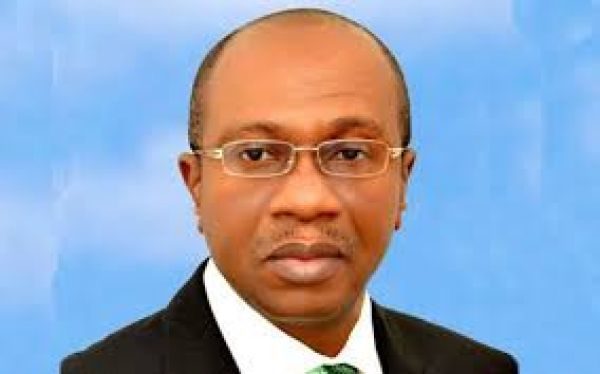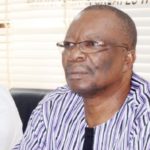The announcement by Governor of Central Bank of Nigeria (CBN), Mr. Godwin Emefiele of the creation of Healthcare Care Sector Research and Development Intervention Scheme (HSRDIS) or Health Sector Intervention Facility (HSIF) in 2020, was received by Nigerians with both applause and skepticism.
Although, with previous development finance interventions by the apex bank since Emefiele became governor, many were not surprised. To them, it was only the thing to expect. The N200 billion fund was introduced few months into the COVID-19 pandemic in 2020.
In the ensuing global panic following the unprecedented onslaught of coronavirus disease, many countries shut their doors to exportation of essential and non-essential items including food and drugs.
India, a country which supplies Nigeria most of its pharmaceutical needs placed a restriction on the export of 26 Active Pharmaceutical Ingredients (API), and the finished medicines made from them. The second most populous country in the world had been hard hit by coronavirus and it thought the best way to secure its citizens’ healthcare needs was to halt further exports.
Incidentally, India also depended on China’s Hubei province for the supply of 13 of the 26 API’s and their finished formulations. China it would be recalled, is controversially, the origin of novel coronavirus. India’s action of shutting its borders to drugs exportation was thus an eye opener for Emefiele, who declared India’s action as leaving Nigeria with “no choice but to produce the drugs locally”.
For decades, Nigerians have suffered from an inadequately funded healthcare system, characterised by squalid clinics and hospitals, dissatisfied and overworked personnel who escape abroad at the earliest opportunity in search of greener pasture. Data from the U.K.
General Medical Council website showed there are at least 8,178 medical doctors of Nigerian origin working in the U.K. According to some statistics, Nigeria spends $1.25 billion on medical tourism in a year with 9,000 medical tourists arriving in different countries every month. This grows by 20 per cent annually.
In a 2016 report, Price Waterhouse Coopers stated that Nigerians spend $1 billion annually on medical tourism with 60 per cent of the sum going to oncology, orthopedics, nephrology, and cardiology.
According to the National Association of Resident Doctors (NARD), about N576 billion ($1.2 billion) is lost to medical tourism yearly in Nigeria, an amount that could have been invested in the health care system. This is just about N100 billion less than the N632.7 billion allocated to the health sector in the FGN 2021 budget.
Although Covid-19 was the immediate trigger for the introduction of health intervention facility, the intervention was to generally strengthen public healthcare systems with innovative financing of research and development in new and improved drugs, vaccines and diagnostics of infectious diseases in Nigeria.
CBN said, “specifically HSRDIS is designed to trigger intense national Research and Development activities to develop a Nigerian vaccine, drugs and herbal medicines/medical devices against the spread of COVID-19 and any other communicable or non-communicable diseases. This will be done through the provision of grants to biotechnological and pharmaceutical companies, institutions, researchers, and research institutes. The grants will support research and development of drugs, herbal medicines/medical devices and vaccines for the control, prevention and treatment of infectious diseases.”
The scheme was designed to boost domestication of critical drugs and vaccines to ensure their sustainable domestic supply and reduce their bulk manufacturing cost in Nigeria with the overall objective of reducing Nigeria’s dependence on other countries for critical drugs and vaccines. HSRDIS, CBN stated on its website, is a subset and will be funded from the development component Micro, Small and Medium Enterprise Development Fund (MSMEDF).
The scheme provides for a maximum of N50 million grant earmarked for research activities and a maximum of N500 million grant for development and manufacturing. “Disbursement under the scheme shall be made to beneficiaries in tranches subject to approved milestones achieved. A Body of Experts (BoE) shall be responsible for the review and evaluation of submitted research proposals,” it added.
Emefiele underpinned the strain and draining impact that expanding medical tourism was putting on the economy when he said, “Medical tourism put a huge strain on our foreign reserves and more importantly, for every $1 billion allocated to medical treatment abroad, there is less than $1 billion that could be available to other critical sectors of our economy. As part of this effort, the CBN, led by a select private sector stakeholders supported Covid-19 through CACOVID and in a bid to further drive the recovery of our economy, monetary policy recognised that while the interventions in our manufacturing sector is essential, it is also essential, we continue to give support to the medical sector of our country. When intervention on COVID commenced, CBN set aside N100 billion to support the healthcare sector.”
In just over a year of the operationalisation of the scheme, the N100 billion allocated had been gulped down by a much-starved health industry such that an additional N100 billion was allocated to the facility.
Giving an update on the health intervention scheme at an event in Lagos, Emefiele explained, “but upon rise in demand, CBN had disbursed N107.7 billion, supporting 114 healthcare projects which include medical diagnostics, pharmaceuticals, dental services, eye clinics both private and public hospital just to mention a few.” He added, “We had taken up N100 billion to support but the monetary policy has said we should move it further up to N200 billion. We would continue to do whatever can be done to support healthcare.”
Although some stakeholders in the health industry have suggested an improvement in the management and disbursement mechanism of the scheme, majority of them are happy that CBN birthed such an initiative. With the support of the scheme, many local pharmaceutical industries, hospitals, and researchers have become more productive.
Chairman, Pharmaceutical Manufacturers Group of Manufacturers Association of Nigeria (PMG-MAN), Dr. Fidelis Ayebae told reporters, “Every company that met the loan requirement got it. We are happy with the CBN for the initiative and the way it was implemented. Members that are yet to access it are working with the commercial banks with whom they have a relationship to close documentation gaps before moving on to CBN. Overall, it is success in intervention. Some of the impact can already be seen in the financial performance of the early recipients of the loans.”
To the President, Nigerian Association of Resident Doctors (NARD), Dr. Uyilawa Okhuaihesuyi, “It is commendable.”
Meanwhile, pharmacists under the aegis of the Pharmaceutical Society of Nigeria (PSN), have confirmed that more than 90 per cent of the N100 billion COVID-19 intervention fund for the healthcare/pharmaceutical industry have been accessed by members.
While clarifying some concerns of stakeholders, Director of Corporate Communications of the CBN, Mr. Osita Nwanisobi, said CBN was monitoring and evaluating the Health Sector Intervention Facility (HSIF) and thus far, there has not been any diversion. Besides, the CBN also carries out impact assessment of the facility.
According to him, the loan amount limit to be provided is based on whether the loan is to fund working capital or is a term loan. “If the loan is for working capital purposes, the loan limit is based on whether the eligible participant has been in operation for up to three years at the time of applying for the loan. Where the loan is for working capital and the eligible participant has been in operation for at least three years, the loan limit shall be calculated at 20 per cent of the company’s three-year average of its turnover, up to N500 million.
“Where the loan is for working capital and the eligible participant has not been in operation for at least three years, the loan limit shall be calculated at 20 per cent of the company’s previous year’s turnover, up to N500 million,” Nwanisobi said.
He said where it is a term loan, the limit shall be N2 billion for the eligible participant and interest rate is no more than five per cent per annum all-inclusive for loans taken until February 28, 2021, and nine per cent per annum for loans taken from March 1, 2021.
- Aderinto, a public affairs commentator lives in Lagos
ALSO READ FROM NIGERIAN TRIBUNE
- Suspense As APC, PDP Governors Meet In Lagos
- I Had Sex With Sofiat Before We Cut Off Her Head, Removed Flesh From Her Thigh For Money Ritual —Lover Boy
- Marburg Virus: What You Need To Know About Disease Recently Detected In West Africa
- FACT CHECK: US Did Not Give Nigeria 48 Hours Ultimatum To Detain Abba Kyari






